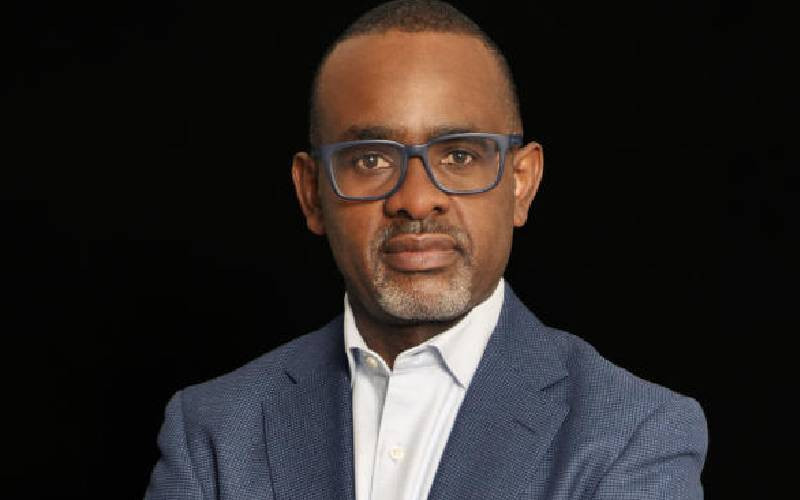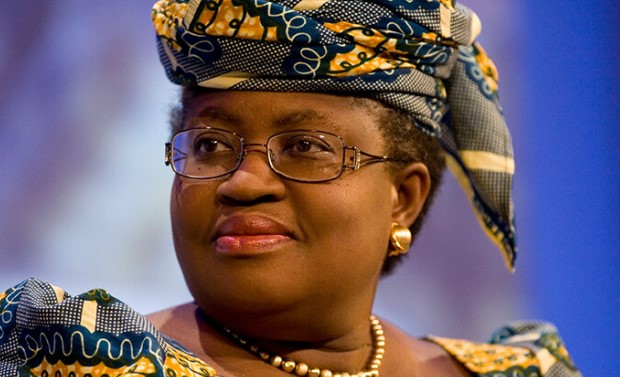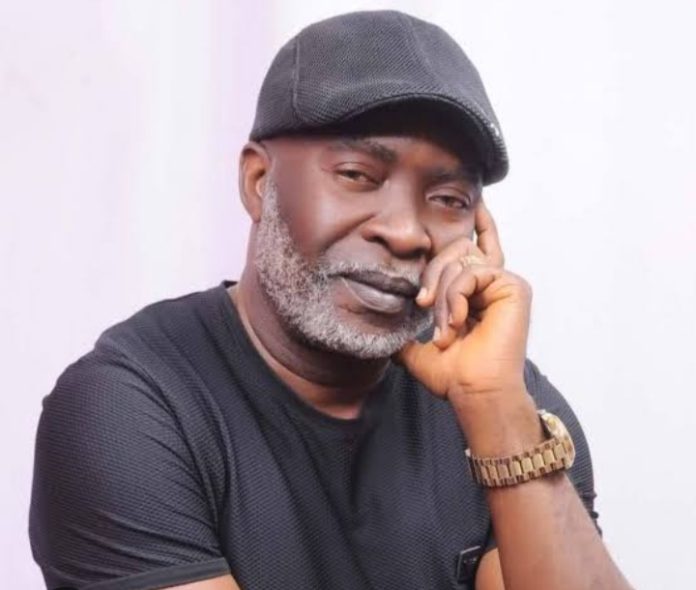News
What We Can Learn from Africa’s Small Business Success Stories

By Gerald Maithya, General Manager, Microsoft Africa Transformation Office
Africa is often hailed as the birthplace of some of the world’s most exciting tech startups. From Cape to Cairo, small businesses across the continent have become catalysts for change, helping to drive economic prosperity and leaving their mark on local society. In fact, it’s predicted that Africa’s digital economy, fueled by hundreds of active tech hubs, could contribute nearly $180 billion to the region’s growth by the mid-decade.

Gerald Maithya, General Manager, Microsoft Africa Transformation Office –
Having produced several industry shakers in the fintech space, it’s perhaps not surprising that the continent has become a very attractive option for startup investment. According to BCG, the rate of growth in the number of African startups receiving financial backing between 2015 and 2022 was nearly six times faster than the global average. And during the first nine months of 2023 alone, these tech ventures raised around $1.4 billion.
With SMEs already accounting for up to 90 percent of businesses in Sub-Saharan Africa, much focus is placed on supporting this vital sector of the economy to reach the levels of success we’ve come to associate with Africa’s tenacious startup culture.
The question is – how do we empower the small business down the road to rise to the ranks of a Flutterwave in Nigeria or M-KOPA in Kenya?
The cloud effect
Much of the answer lies with providing these enterprises with the technology they need to drive operational efficiencies and scale their operations. Cloud technology, in the form of Microsoft Azure for example, has played an important part over the years in supporting Flutterwave’s core operations. Now as the company seeks to build on its success it is again looking to the expansion power of the cloud, building its next generation platform on Azure so that it can process high volume payments at scale, while also ensuring a seamless and secure payment experience for its clients.
Kenyan startup, M-KOPA, recently raised $250 million in debt equity. The company, which provides digital financial services to underbanked consumers, also relies heavily on the computing capacity of the cloud. In fact, its ability to process 500 payments per minute makes it possible for the startup to provide 3 million people across Africa with access to essential services such as solar power systems, digital loans, health insurance and smartphones.
Beyond fintech, small businesses are having a transformative impact on other key sectors such as healthcare. And as with Flutterwave and M-KOPA, many of these enterprises have something important in common – the backing of powerful technology.
In South Africa, Omnisient, is helping to elevate crucial decision-making across healthcare systems through a recent partnership with Altron HealthTech. The startup has created a platform that facilitates data collaboration across records and datasets and can securely match anonymised patient information in a safe environment for analysis. This allows Altron’s healthcare partners more insight into disease patterns and can improve treatments and medication efficacy. In the long term, Altron HealthTech hopes to use this information to support the healthcare industry in determining where new clinics, pharmacies and hospitals need to be built.
Another startup leaving its mark in the healthcare space, Zen Dawa, is helping to reimagine pharmaceutical operations across both rural and urban areas of East Africa by creating online access to pharmaceutical offerings as well as financing solutions for small businesses and pharmacy shops. By making use of Microsoft’s robust AI platform built on Azure, the startup is helping to contribute positively to the availability of essential medicines across East Africa.
There are still many questions to be answered, however, when it comes to drawing a larger number of the continent’s SMEs into the digital economy. Africa is still behind other regions in the world when it comes to digital infrastructure coverage, access, and quality. We are also still battling a shortage of skills and inadequate regulatory policy environments. In fact, with just 22 percent of the population online, Sub-Saharan Africa is still the world’s least connected region.
Supercharging Africa’s dynamic startup ecosystem
Addressing these issues will rely in no small part on the development of strategic alliances across both public and private sectors. These collaborations are pivotal to the development of comprehensive solutions to the multi-faceted challenges faced by small businesses in Africa. The FGN-ALAT digital Skillnovation Programme is a great example of this. A partnership between the Federal Government of Nigeria, Wema Bank, Get Funded Africa and Microsoft, the programme aims to train and equip one million micro, small and medium enterprises (MSMEs) across the country by the end of June 2024. Already 350, 000 MSMEs have been impacted.
Beyond skills, these businesses require business mentorship and access to market and finance opportunities – through effective collaboration the initiative aims to address all these needs in a holistic manner, facilitating opportunities, for example, to receive debt financing, equity investment and grants.
And by tapping into the distribution networks of multi-national corporations, the opportunity for strategic alliances to reach vast numbers of SMEs across the continent is significant. A recent partnership between Orange and Microsoft aims to accelerate the digitisation of small businesses in Africa by leveraging the telco’s formidable network to provide SMEs with access to Microsoft solutions such as Microsoft 365, Copilot, Azure, and Dynamics 365.
Similarly, the FAST Accelerator programme, which was launched together by Flapmax and Microsoft, helps startups scale rapidly and access new growth opportunities by bringing together cutting-edge technologies and business development strategies. Accelerators such as these with vast resources at their disposal are experiencing considerable success in helping startups like Zen Dawa to scale. In fact, with the support of the programme, the company now plans to dramatically extend the number of pharmacies it services from 520 to 10,000 by the end of the year.
The more Africa can produce successful collaborations such as these, the more we’ll start to see a greater number of small businesses emerge as powerful economic contributors. These strategic partnerships hold the key to unlocking immense potential across sectors, empowering entrepreneurial ventures to drive new digital solutions to long-standing challenges and creating a ripple effect that reverberates throughout the continent
News
Okonjo-Iweala Urges Nigeria to Shift from Importing Tech to Local Manufacturing

Dr. Ngozi Okonjo-Iweala, Director-General of the World Trade Organisation, WTO, has urged Nigeria to move decisively beyond importing technology to manufacturing it locally, warning that sustained dependence on foreign technology weakens the country’s industrial base and constrains job creation in the digital economy.

Speaking at Ahmadu Bello University, ABU, Zaria, Okonjo-Iweala said the current disruption of the global order, driven by technology, geopolitics and climate pressures, presents both serious risks and unprecedented opportunities for Nigeria and Africa, if they are prepared to act strategically.
“It is always a pleasure to come home to Nigeria, but it is particularly special to be here at one of the country’s most important seats of learning,” she said, stressing that universities such as ABU must remain central to Africa’s technological, industrial and economic transformation.
Tracing Nigeria’s post-independence journey, Okonjo-Iweala recalled that at independence in 1960, the country had only one degree-awarding institution, making the rapid expansion of universities a critical pillar of nation-building.
She noted that institutions such as ABU laid the foundation for Nigeria’s scientific, technological and entrepreneurial capacity.
Founded in 1962 as the University of Northern Nigeria, ABU has evolved into a multidisciplinary institution producing graduates across engineering, medicine, sciences, ICT, public administration and the humanities.
“Research conducted here has advanced the frontier of knowledge and offered practical solutions to real-world problems, from animal feed innovations during dry seasons to wind power generation in rural areas,” she said.
Turning to global trends, the WTO chief identified technology, particularly the internet and artificial intelligence, AI, as one of the most disruptive forces reshaping trade, production and employment worldwide.
“The technological shift we are experiencing has made it easier to communicate, produce and trade, but not everyone has shared equally in the gains,” she said, warning that automation and AI could deepen inequality if not properly managed.
She stressed that multilateral institutions and global trade rules must evolve to respond to emerging technologies such as AI and quantum computing.
“We need a new kind of multilateralism, one that is nimble, responsive and capable of addressing new global opportunities,” she said.
Okonjo-Iweala said Africa stands to benefit from what the WTO now describes as “re-globalisation”, the diversification of global supply chains away from over-dependence on a few countries.
She identified opportunities in labour-intensive manufacturing, critical minerals processing, renewable energy technology, pharmaceuticals, agro-processing and electric vehicle, EV, supply chains.
“Africa has the capacity to process its critical minerals all the way to EV battery manufacturing,” she said, pointing to Nigeria’s emerging lithium processing investments and vast renewable energy potential.
Reinforcing her call for local technology production, she said Nigeria must stop importing technologies it can manufacture domestically.
“Instead of importing solar panels, we should be manufacturing them here. That is how we create jobs, build resilience and grow our economy,” she said.
Okonjo-Iweala warned that Nigeria’s projected economic growth of 4.4 percent remains insufficient once population growth is factored in, calling for sustained growth of 6 to 7 per cent driven by productivity, technology and value addition.
She said achieving this would require strong digital infrastructure, skills development and innovation-friendly policies, alongside full implementation of the African Continental Free Trade Agreement, AfCFTA.
“Technology-enabled trade and deeper regional integration could increase intra-African trade by up to 45 per cent and lift millions of people out of poverty,” she said.
With Africa projected to account for about 25 per cent of the global working-age population by 2050, Okonjo-Iweala described Nigeria’s young population as one of its greatest technology assets.
“On an ageing planet, Africa’s youth represent the world’s future talent pool,” she said, urging universities, policymakers and the private sector to better align education, innovation and industrial strategy.
She, therefore, called for stronger collaboration between academia, industry and government to ensure Nigeria does not miss the opportunities created by global technological disruption.
“This country has what it takes. What we need is urgency, coordination and the courage to invest in our people and our ideas,” Okonjo-Iweala said.
News
Stanley Amandi, Nollywood Actor Arrested over Alleged Coup Plot against Tinubu

Stanley Amandi, veteran Nollywood actor and filmmaker, has been arrested by the Nigerian military over his alleged role in a foiled coup plot to overthrow President Bola Tinubu’s government, according to an exclusive report by Premium Times.

Stanley Amandi, Nollywood Actor
The filmmaker, also a former chairman of the Actors Guild of Nigeria (AGN) Enugu State chapter, was reportedly detained in September 2025 alongside several military officers accused of planning a violent overthrow, including potential assassinations of top officials, according to the newspaper’s sources.
Reports indicated that the coup plotters planned to wholesale assassination of top government officials including President Tinubu, Vice President Kashim Shettima, Senate President Godswill Akpabio, and Speaker of the House of Representatives Tajudeen Abbas, among others.
On Monday, the Defence Headquarters confirmed the plan to illegally oust the Tinubu administration, saying the indicted officers will be arraigned before military judicial panels.
In its statement, the Defence Headquarters said the investigation has been completed and forwarded to “appropriate superior authority in line with extant regulations.”
According to the military, the investigation was “comprehensive” and conducted in line with established procedures, examining “all circumstances surrounding the conduct of the affected personnel.”
The military disclosed that the findings identified “a number of the officers with allegations of plotting to overthrow the government,” describing such conduct as “inconsistent with the ethics, values and professional standards required of members of the Armed Forces of Nigeria.”
Mr Amandi has featured in many Nollywood movies and is known for his work as an actor, production manager and director.
His notable works include “The Album,” where he served as director; “Tiger King,” where he also served as director and produced in 2008; “Cornerstone,” produced in 2019; and “Once Upon a Dream,” in which he appeared as an actor in 2024.
Mr Amandi’s last Instagram post was on 19 September 2025, shortly before his arrest.
News
Firms Commit to Boost African Robotics Market

AfricAI and Micropolis Robotics have signed a multi-year exclusive distribution and deployment agreement, which marks one of the continent’s most significant robotics market entries.

Micropolis AI Robotics is a United Arab Emirates-based robotics manufacturer operating in autonomous systems, while AfricAI is a company building practical, revenue-driven artificial intelligence (AI) systems for African businesses, governments, and global partners operating in emerging markets.
According to the agreement, Micropolis Robotics named AfricAI as its exclusive continental partner, prohibiting direct sales, alternative distributors, and third-party agents from operating in the territory.
The partnership establishes AfricAI as the primary execution, localisation, and go-to-market platform for intelligent robotics in Africa’s industrial, security, logistics, and infrastructure sectors.
AfricAI said this exclusive mandate positions the company as the gateway for advanced autonomous systems entering African markets, ensuring regulatory compliance, local capacity building, and sovereign control over deployment frameworks.
The partnership, according to the two parties, moves beyond software- based AI into the realm of physical AI — intelligent machines capable of operating in complex, real-world African environments.
“This is not a collaboration, it is a market-shaping mandate,” said Fareed Aljawhari, CEO of Micropolis Robotics. “AfricAI now represents the exclusive gateway through which Micropolis technologies enter Africa. Their sovereign AI vision, operational reach, and regulatory fluency make them the only partner capable of executing at a continental scale.
Furthermore, the agreement enables AfricAI to integrate Micropolis’ autonomous robotics systems with AfricAI’s sovereign AI stack, resulting in AI-powered security and surveillance platforms, robotics-enabled logistics and port operations, industrial automation, smart infrastructure, and municipal robotics tailored to African operating conditions.
Initial deployments will commence in security, smart infrastructure, and logistics, with phased expansion across multiple African states as part of AfricAI’s broader continental AI, data, and intelligent infrastructure strategy.
The agreement also includes long-term performance-linked expansion rights, automatic renewals, and a defined localisation framework to support robotics deployment, workforce training, and skills transfer across Africa.
Prince Malik Ado-Ibrahim, executive chairman of AfricAI, said: “Africa does not need imported automation — it needs sovereign, context-aware intelligent systems. This exclusive mandate allows AfricAI to industrialise robotics deployment at scale while retaining control, compliance, and value creation on the continent.”

 E-Business2 days ago
E-Business2 days agoKaspersky Launches OT Calculator to Align Cybersecurity Investments with Business Goals

 News2 days ago
News2 days agoStanley Amandi, Nollywood Actor Arrested over Alleged Coup Plot against Tinubu

 E-Financial2 days ago
E-Financial2 days agoFBNQuest Merchant Bank Rebrands as Quest Merchant Bank

 General News1 day ago
General News1 day agoNigeria’s Data Privacy Economy Hits ₦16.2bn – NDPC Commissioner

 Telecom2 days ago
Telecom2 days agoFG to Acquire Two Communications Satellite to Boost Digital Access

 General News2 days ago
General News2 days agoHow Plot to Topple Tinubu was Uncovered, Foiled

 General News2 days ago
General News2 days agoMoniepoint Marks 10 Years of Transforming Nigerian Businesses

 Telecom1 day ago
Telecom1 day agoAfrica’s AI Guru Abodunrin Charts Path to Continent’s Digital Dominance


























